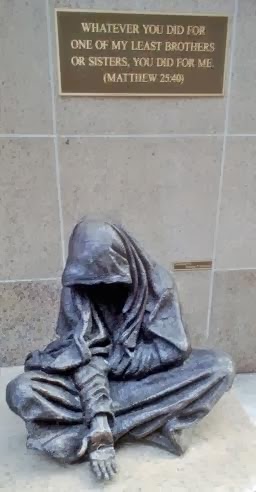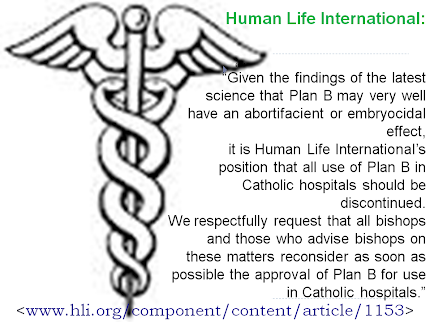Forty
six years before my birth in Brooklyn, my father was born in 1912 Dublin,
Ireland. He was the youngest of seven in
a Catholic family. After he died in 1984,
all those siblings outlived him – three of them in the New York area. I would look in on his oldest brother, Andy,
who was actually old enough to be my great-grandfather. But, I’ve gotten ahead of myself….
In
the 5th century A.D., a teen from Roman-Britain was kidnapped and
enslaved in Ireland. Though he later escaped,
he was to return to the land of his captivity as a bishop. Saint Patrick’s
influence was nothing short of phenomenal with dramatic declines in war and
murder, as well as an end to the Irish slave trade. And when the Roman Empire
collapsed, the monks of Ireland preserved the writings of Western Civilization.
Fast forward to the 16th century and we find that King Henry VIII has decided to divorce his wife, Catherine of Aragon, so as to marry Anne Boleyn. In reaction to the Pope’s refusal to annul Henry’s marriage to Catherine, Henry declared himself head of the church of England (Of the 5 women he attempted to marry after Catherine, he had two beheaded!). Subsequently, there were times when it was illegal to be Catholic in England or her territories. “Penal laws” are said to have been enforced more vigorously in Ireland than elsewhere in the realm.
Fast forward to the 16th century and we find that King Henry VIII has decided to divorce his wife, Catherine of Aragon, so as to marry Anne Boleyn. In reaction to the Pope’s refusal to annul Henry’s marriage to Catherine, Henry declared himself head of the church of England (Of the 5 women he attempted to marry after Catherine, he had two beheaded!). Subsequently, there were times when it was illegal to be Catholic in England or her territories. “Penal laws” are said to have been enforced more vigorously in Ireland than elsewhere in the realm.
Center City Philadelphia’s Irish
Memorial reminds us of "Ireland's Great Hunger of 1845 - 1850 when more
than one million Irish were starved to death and another million forced to
emigrate." There is a strong belief
that England conveniently and deliberately ignored what was happening:
“Back in Famine time, the
same potato crop disease occurred most heavily in Scotland, outside Ireland,
yet there were relatively few casualties as the landowners and government
ensured, for their own sakes as much as anything, that there was no mass death. That was not the case in Ireland, where a
very different mentality prevailed. The damned Irish were going to get what
they deserved because of their attachment to Catholicism and Irish ways when
they were refusing to toe the British line…. every possible effort by local
organizations to feed the starving were [sic] thwarted and frustrated by a
British government intent on teaching the Irish a lesson and forcing market
forces on them” (Niall
O’Dowd, Irish Central, 3/8/16).
So many of the descendants of those
who managed to escape the famine now call America their home. They had a profound impact on Catholicism in
America, which had been rather small, until their arrival.
I can
now finally get back to Long Island of the mid to late 1980s. A prolific reader, Uncle Andy would talk of family
and Irish history in a fascinating and witty way. While Uncle Joe was an Augustinian priest and
Aunt Kitty was a Mercy nun, Uncle Andy’s tales could be highly critical of Catholicism
and Irish nationalism, setting him at odds with all of his siblings. So much of it seems to have been his reaction
to events he personally witnessed in the Dublin of his late teens:
“‘Easter 1916’ by William
Butler Yeats is one of the most famous poems written in English in modern
times. It commemorates the doomed Irish rebellion that occurred at Easter a
century ago….One of the Irish leaders was Patrick Pearse, who was obsessed with
ideas of redemption through blood….Following the logic of his teaching, on
Easter Monday 1916, Pearse joined other nationalists, both Catholic and
secular, in a suicidal rising against British power” (Phillip
Jenkins, Aletia, 3/28/16).
While
Ireland is now commemorating the 100th anniversary of the “Easter
Rebellion,” many Irish Americans seem to have romanticized notions of what actually
happened. After Uncle Andy’s death, I
came across Peter DeRosa’s “Rebels:
The Irish Rising of 1916” and better appreciated that Uncle Andy gave me an
eyewitness account of pivotal 20th Century events. And while Ireland had undoubtedly suffered
much, the suicidal undertakings of Pearse and others do not stand up to a
Catholic “just war” analysis:
“The
strict conditions for legitimate defense by military force require
rigorous consideration. The gravity of such a decision makes it subject to
rigorous conditions of moral legitimacy. At one and the same time:
- the damage inflicted by the aggressor on the nation or
community of nations must be lasting, grave, and certain;
- all other means of putting an end to it must have been
shown to be impractical or ineffective;
- there must be serious prospects of success;
- the use of arms must not produce evils and disorders
graver than the evil to be eliminated. The power of modern means of destruction
weighs very heavily in evaluating this condition.
These are the traditional elements enumerated in what is
called the ‘just war’ doctrine.
The evaluation of these conditions for moral legitimacy
belongs to the prudential judgment of those who have responsibility for the
common good” (Catechism
of the Catholic Church, #2309).
























